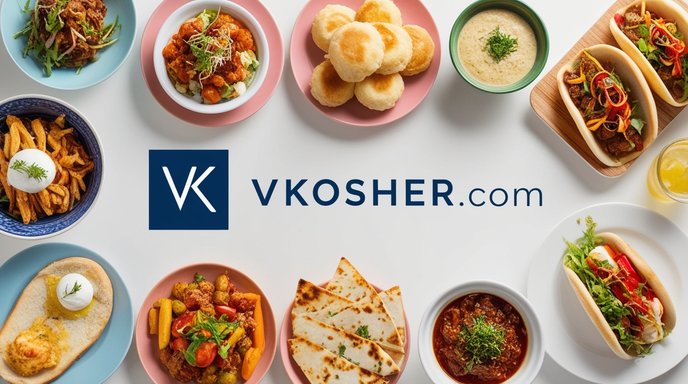Understanding Kosher Food Regulations
Kosher food regulations, deeply rooted in Jewish law, have evolved over thousands of years, guiding the dietary practices of Jewish communities worldwide. These regulations are not merely dietary guidelines but a comprehensive set of rules and spiritual principles that govern what can be eaten, how food must be prepared, and even the conditions under which it can be consumed. The term "kosher" comes from the Hebrew word "kashér," meaning fit or proper, indicating that a food meets all the necessary standards set forth in Jewish law.
Biblical Origins and Principles
The foundation of kosher food regulations can be found in the Torah, the central religious text of Judaism. The Torah outlines specific prohibitions and requirements regarding food consumption, forming the basis of the kosher dietary laws known as Kashrut. Among the most well-known laws are those concerning the types of animals that can be eaten, the prohibition against mixing meat and dairy, and the process of slaughtering animals in a humane and ritually acceptable manner.
One of the key principles of kosher laws is the distinction between animals that are considered kosher and those that are not. For an animal to be kosher, it must be a mammal that chews its cud and has split hooves. This includes cows, sheep, and goats, but excludes pigs, which are explicitly prohibited. Birds that are kosher include chicken, turkey, and certain types of ducks, while birds of prey are not kosher.
Fish must have both fins and scales to be considered kosher, which means that shellfish, such as shrimp and lobster, are not permitted. Insects are generally not kosher, with the exception of certain types of locusts in some Jewish communities.
The Prohibition of Mixing Meat and Dairy
One of the most distinctive aspects of kosher food regulations is the prohibition against mixing meat and dairy products. This law is derived from a verse in the Torah that states, "You shall not boil a kid in its mother's milk." Over time, this commandment has been interpreted by Jewish scholars to mean that meat and dairy should not be eaten together, nor should they be cooked or processed using the same utensils or equipment.
This separation extends to the kitchen, where observant Jews often maintain separate sets of cookware, dishes, and utensils for meat and dairy. Additionally, there are specific waiting periods between eating meat and dairy, with the length of time varying depending on different Jewish traditions.
The Role of Kosher Certification
In the modern world, kosher certification has become an essential part of ensuring that food products meet kosher standards. Kosher certification is provided by various organizations and agencies that employ trained inspectors, known as mashgichim, to oversee the production of food. These inspectors ensure that all ingredients, equipment, and processes comply with kosher laws.
A product that has been certified as kosher will bear a symbol, often a "K" or a "U" with an accompanying letter or word indicating the certifying agency. This symbol is crucial for consumers who adhere to kosher dietary laws, as it provides assurance that the product meets all necessary requirements.
Kosher certification is particularly important in processed foods, where hidden ingredients or additives might render a product non-kosher. For example, many food colorings, flavorings, and preservatives are derived from non-kosher sources, making the certification process essential.
Kosher Slaughter (Shechita)
The process of slaughtering animals for kosher consumption is known as shechita, and it is one of the most strictly regulated aspects of kosher law. Shechita must be performed by a trained and certified individual known as a shochet. The shochet must use a specially designed knife, known as a chalaf, which must be perfectly sharp and free of nicks.
The shechita process is intended to minimize the pain and suffering of the animal. The shochet makes a single, swift incision across the animal's throat, severing the trachea, esophagus, and major blood vessels. This method is believed to cause an immediate loss of consciousness, ensuring that the animal does not suffer unnecessarily.
After slaughter, the animal must be inspected to ensure it is free from any physical defects or diseases that would render it non-kosher. This inspection process is known as bedika, and it involves checking the lungs and other internal organs for any signs of illness or injury.
The Concept of Pareve
In addition to meat and dairy, kosher food regulations recognize a third category of food known as pareve. Pareve foods are considered neutral and can be eaten with either meat or dairy. Examples of pareve foods include fruits, vegetables, grains, and eggs. Fish is also classified as pareve, but it should not be eaten with meat, according to some Jewish customs.
Pareve foods must be carefully prepared and processed to ensure they do not come into contact with meat or dairy. This is especially important in commercial food production, where cross-contamination can easily occur. Kosher certification agencies closely monitor the handling of pareve foods to maintain their status.
Kosher for Passover
An additional layer of kosher regulations comes into play during the Jewish holiday of Passover. During Passover, Jews are prohibited from eating leavened bread or any food containing leavening agents, known as chametz. This restriction commemorates the Exodus from Egypt when the Israelites had to leave so quickly that their bread did not have time to rise.
To be kosher for Passover, food must not only meet the regular kosher standards but also be free from chametz. This requirement extends to all ingredients, equipment, and even the cleaning processes used in food production. Many Jewish families go to great lengths to clean their homes and kitchens of any trace of chametz before Passover begins.
Special kosher for Passover certifications are issued for products that meet these additional requirements. These products are often marked with a symbol that includes the letter "P" alongside the regular kosher certification mark.
The Global Impact of Kosher Regulations
Kosher food regulations have had a significant impact on the global food industry. In addition to serving the needs of Jewish consumers, kosher-certified products are often sought after by individuals with specific dietary concerns, such as those who are lactose intolerant or vegetarian. The strict oversight and high standards required for kosher certification can also appeal to consumers who are concerned about food safety and ethical sourcing.
In some countries, kosher products are a niche market, while in others, such as the United States and Israel, they are widely available and form a substantial segment of the food industry. The global demand for kosher products has led many food manufacturers to seek kosher certification, even if their primary market is not Jewish.
Challenges and Controversies
While kosher food regulations are a vital part of Jewish religious practice, they have not been without controversy. Some animal rights groups have raised concerns about the shechita process, arguing that it may cause unnecessary suffering to animals. In response, proponents of kosher slaughter argue that when performed correctly, shechita is one of the most humane methods of animal slaughter.
There have also been debates within the Jewish community about the modernization of kosher laws and the role of technology in food production. Some argue that the increasing complexity of food manufacturing makes it difficult to ensure that all kosher laws are followed, while others see technological advancements as a way to improve and streamline kosher certification processes.
Conclusion
Kosher food regulations are a complex and multifaceted system of laws that govern what observant Jews can eat. Rooted in ancient religious texts and traditions, these laws have evolved to meet the needs of modern life while maintaining their spiritual significance. The kosher food industry continues to grow and adapt, meeting the demands of a global market while preserving the integrity of the laws that define it. Whether observed for religious reasons, health concerns, or ethical considerations, kosher food regulations remain a powerful and enduring aspect of Jewish culture and identity.
Kosher food regulations, deeply rooted in Jewish law, have evolved over thousands of years, guiding the dietary practices of Jewish communities worldwide. These regulations are not merely dietary guidelines but a comprehensive set of rules and spiritual principles that govern what can be eaten, how food must be prepared, and even the conditions under which it can be consumed. The term "kosher" comes from the Hebrew word "kashér," meaning fit or proper, indicating that a food meets all the necessary standards set forth in Jewish law.
Biblical Origins and Principles
The foundation of kosher food regulations can be found in the Torah, the central religious text of Judaism. The Torah outlines specific prohibitions and requirements regarding food consumption, forming the basis of the kosher dietary laws known as Kashrut. Among the most well-known laws are those concerning the types of animals that can be eaten, the prohibition against mixing meat and dairy, and the process of slaughtering animals in a humane and ritually acceptable manner.
One of the key principles of kosher laws is the distinction between animals that are considered kosher and those that are not. For an animal to be kosher, it must be a mammal that chews its cud and has split hooves. This includes cows, sheep, and goats, but excludes pigs, which are explicitly prohibited. Birds that are kosher include chicken, turkey, and certain types of ducks, while birds of prey are not kosher.
Fish must have both fins and scales to be considered kosher, which means that shellfish, such as shrimp and lobster, are not permitted. Insects are generally not kosher, with the exception of certain types of locusts in some Jewish communities.
The Prohibition of Mixing Meat and Dairy
One of the most distinctive aspects of kosher food regulations is the prohibition against mixing meat and dairy products. This law is derived from a verse in the Torah that states, "You shall not boil a kid in its mother's milk." Over time, this commandment has been interpreted by Jewish scholars to mean that meat and dairy should not be eaten together, nor should they be cooked or processed using the same utensils or equipment.
This separation extends to the kitchen, where observant Jews often maintain separate sets of cookware, dishes, and utensils for meat and dairy. Additionally, there are specific waiting periods between eating meat and dairy, with the length of time varying depending on different Jewish traditions.
The Role of Kosher Certification
In the modern world, kosher certification has become an essential part of ensuring that food products meet kosher standards. Kosher certification is provided by various organizations and agencies that employ trained inspectors, known as mashgichim, to oversee the production of food. These inspectors ensure that all ingredients, equipment, and processes comply with kosher laws.
A product that has been certified as kosher will bear a symbol, often a "K" or a "U" with an accompanying letter or word indicating the certifying agency. This symbol is crucial for consumers who adhere to kosher dietary laws, as it provides assurance that the product meets all necessary requirements.
Kosher certification is particularly important in processed foods, where hidden ingredients or additives might render a product non-kosher. For example, many food colorings, flavorings, and preservatives are derived from non-kosher sources, making the certification process essential.
Kosher Slaughter (Shechita)
The process of slaughtering animals for kosher consumption is known as shechita, and it is one of the most strictly regulated aspects of kosher law. Shechita must be performed by a trained and certified individual known as a shochet. The shochet must use a specially designed knife, known as a chalaf, which must be perfectly sharp and free of nicks.
The shechita process is intended to minimize the pain and suffering of the animal. The shochet makes a single, swift incision across the animal's throat, severing the trachea, esophagus, and major blood vessels. This method is believed to cause an immediate loss of consciousness, ensuring that the animal does not suffer unnecessarily.
After slaughter, the animal must be inspected to ensure it is free from any physical defects or diseases that would render it non-kosher. This inspection process is known as bedika, and it involves checking the lungs and other internal organs for any signs of illness or injury.
The Concept of Pareve
In addition to meat and dairy, kosher food regulations recognize a third category of food known as pareve. Pareve foods are considered neutral and can be eaten with either meat or dairy. Examples of pareve foods include fruits, vegetables, grains, and eggs. Fish is also classified as pareve, but it should not be eaten with meat, according to some Jewish customs.
Pareve foods must be carefully prepared and processed to ensure they do not come into contact with meat or dairy. This is especially important in commercial food production, where cross-contamination can easily occur. Kosher certification agencies closely monitor the handling of pareve foods to maintain their status.
Kosher for Passover
An additional layer of kosher regulations comes into play during the Jewish holiday of Passover. During Passover, Jews are prohibited from eating leavened bread or any food containing leavening agents, known as chametz. This restriction commemorates the Exodus from Egypt when the Israelites had to leave so quickly that their bread did not have time to rise.
To be kosher for Passover, food must not only meet the regular kosher standards but also be free from chametz. This requirement extends to all ingredients, equipment, and even the cleaning processes used in food production. Many Jewish families go to great lengths to clean their homes and kitchens of any trace of chametz before Passover begins.
Special kosher for Passover certifications are issued for products that meet these additional requirements. These products are often marked with a symbol that includes the letter "P" alongside the regular kosher certification mark.
The Global Impact of Kosher Regulations
Kosher food regulations have had a significant impact on the global food industry. In addition to serving the needs of Jewish consumers, kosher-certified products are often sought after by individuals with specific dietary concerns, such as those who are lactose intolerant or vegetarian. The strict oversight and high standards required for kosher certification can also appeal to consumers who are concerned about food safety and ethical sourcing.
In some countries, kosher products are a niche market, while in others, such as the United States and Israel, they are widely available and form a substantial segment of the food industry. The global demand for kosher products has led many food manufacturers to seek kosher certification, even if their primary market is not Jewish.
Challenges and Controversies
While kosher food regulations are a vital part of Jewish religious practice, they have not been without controversy. Some animal rights groups have raised concerns about the shechita process, arguing that it may cause unnecessary suffering to animals. In response, proponents of kosher slaughter argue that when performed correctly, shechita is one of the most humane methods of animal slaughter.
There have also been debates within the Jewish community about the modernization of kosher laws and the role of technology in food production. Some argue that the increasing complexity of food manufacturing makes it difficult to ensure that all kosher laws are followed, while others see technological advancements as a way to improve and streamline kosher certification processes.
Conclusion
Kosher food regulations are a complex and multifaceted system of laws that govern what observant Jews can eat. Rooted in ancient religious texts and traditions, these laws have evolved to meet the needs of modern life while maintaining their spiritual significance. The kosher food industry continues to grow and adapt, meeting the demands of a global market while preserving the integrity of the laws that define it. Whether observed for religious reasons, health concerns, or ethical considerations, kosher food regulations remain a powerful and enduring aspect of Jewish culture and identity.



